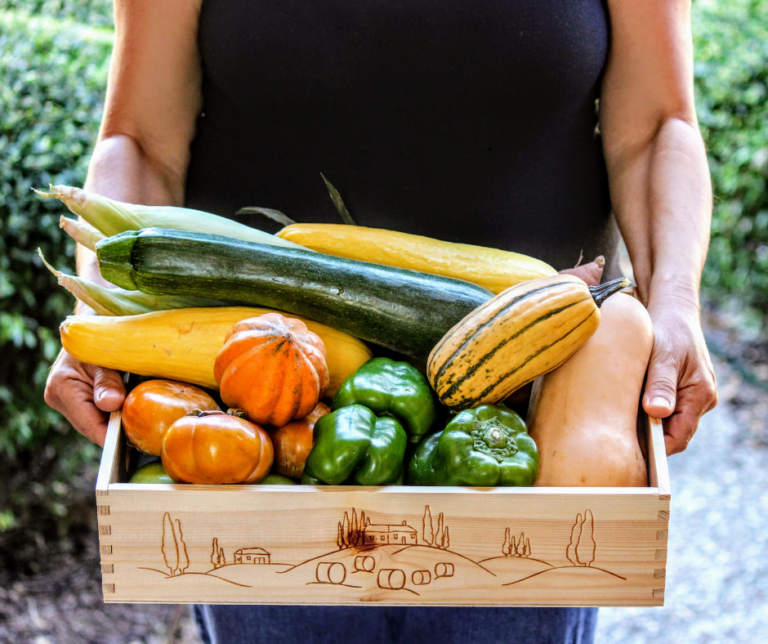Local Farms vs. Supermarkets
In the age of convenience, where supermarkets reign supreme with their wide aisles and endless product offerings, there’s a quiet revolution happening in the world of grocery shopping. More and more consumers are turning their attention towards local farms, Community Supported Agriculture (CSA) programs, and bustling local markets. Why the shift? What draws people away from the fluorescent-lit aisles of supermarkets towards the rustic charm of farm stands and community gatherings? The answer lies in a multitude of benefits that extend far beyond the mere act of purchasing groceries.
In this exploration, we delve into the dichotomy of shopping at local farms versus supermarkets. We’ll uncover the distinct advantages of sourcing your produce from nearby farms, participating in CSA programs, or perusing the stalls of local markets. From the freshness and quality of the offerings to the environmental impact, economic implications, and the communal aspect of shopping, there’s a plethora of reasons why many are opting for a more localized approach to food procurement.
Join us as we navigate through the verdant fields of local agriculture and the bustling aisles of supermarkets, uncovering the hidden treasures and potential pitfalls that each shopping experience offers. Whether you’re a seasoned locavore or a curious consumer looking to make more informed choices, this journey promises to shed light on the rich tapestry of options available in the realm of grocery shopping. So grab your shopping bags and embark with us on this flavorful expedition, where every purchase tells a story and every bite nourishes both body and soul.
Shopping at local farms, joining Community Supported Agriculture (CSA) programs, or shopping at local markets offers several benefits compared to shopping at supermarkets. These advantages can be categorized into several key areas :

Freshness and Quality
Fresher Produce: Local farms and markets typically offer fresher produce, as the items are often harvested within a day or two of sale. This results in better taste and higher nutritional value.
Seasonal Variety: Local sources tend to provide seasonal produce, which is often at its peak in terms of flavor and nutrition.
Environmental Benefits
Sustainable Practices: Many local farms employ sustainable and organic farming practices, promoting soil health and reducing the use of harmful chemicals.
Reduced Carbon Footprint: Local food doesn’t travel long distances, reducing the carbon emissions associated with transportation.

Economic Impact
Supporting Local Economy: Money spent at local farms and markets supports local farmers and the community, keeping financial resources within the local economy.
Job Creation: Supporting local agriculture can create and sustain jobs in the community.
Community and Social Benefits
Building Relationships: Shopping locally fosters relationships between consumers and farmers. This can lead to a better understanding of food sources and trust in food quality.
Community Engagement: Local markets and CSA programs often become community hubs where people can connect and engage with one another.

Health Benefits
Fewer Preservatives: Local produce is less likely to contain preservatives and artificial additives because it doesn’t need to have an extended shelf life.
Organic Options: Many local farms grow their produce organically, providing a healthier option compared to conventionally grown supermarket produce.
Educational Value
Learning Opportunities: Shopping locally provides opportunities to learn about farming practices, seasonal eating, and the origins of food.
Awareness: Consumers become more aware of the seasonality of food and can make more informed choices about their diet.

Unique and Diverse Products
Specialty Items: Local markets often feature unique, heirloom, and heritage varieties of fruits and vegetables that are not typically found in supermarkets.
Homemade Goods: Access to homemade goods like jams, pickles, bread, and cheeses, which are often made using traditional methods and high-quality ingredients.


Ethical Considerations
Animal Welfare: Local farms often adhere to higher standards of animal welfare compared to large industrial operations.
Fair Labour Practices: Small-scale farms are more likely to ensure fair labour practices and good working conditions for their employees.

Shopping at local farms, joining CSA programs, or buying from local markets offers numerous benefits that extend beyond the immediate satisfaction of purchasing groceries. These benefits include fresher and higher-quality produce, a reduced environmental impact, economic support for the local community, enhanced community ties, better health options, educational opportunities, access to unique products, and more ethical food choices. Embracing these local food sources can lead to a more sustainable and satisfying shopping experience.




